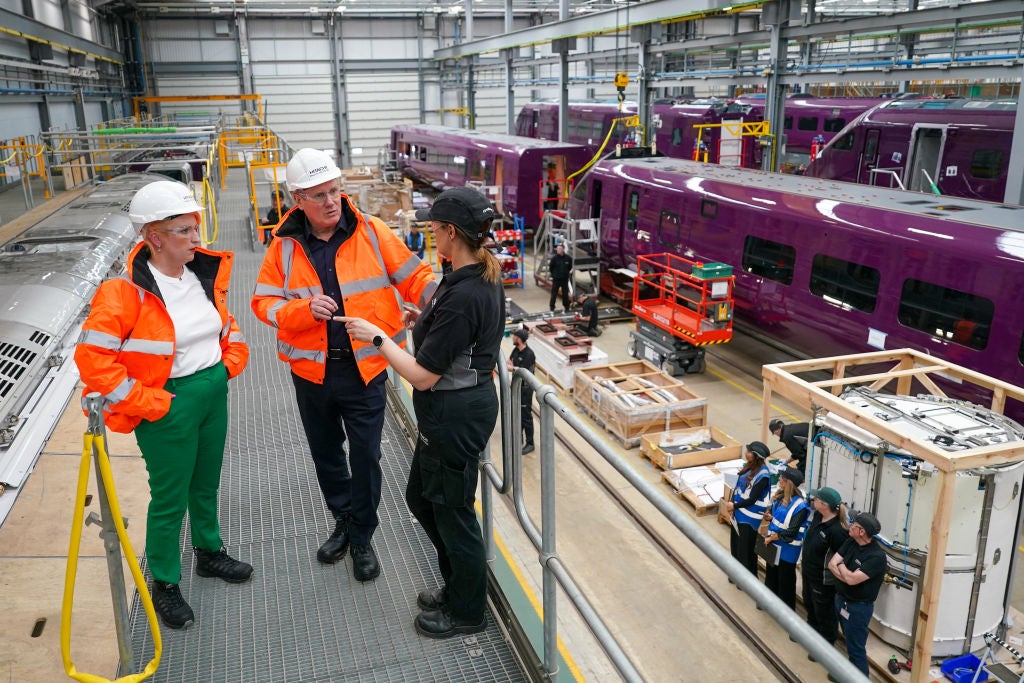
After a long night of vote counting and speeches, the UK has woken up to a new government. Keir Starmer’s Labour Party will form the next administration, and it has already set out its plans for reforming the nation’s railways.
Getting Britain Moving
Back in April Labour published its plan, presented by Lou Haigh the incoming Transport Minister.

Discover B2B Marketing That Performs
Combine business intelligence and editorial excellence to reach engaged professionals across 36 leading media platforms.
Haigh set out six one-word objectives for the sector, focused on passenger services.
Reliable; Affordable; Efficient; Quality; Accessible; and Safe.
But the real stand-out promises in the plan to “Get Britain Moving” were more concrete. Haigh said the new administration will nationalise Train Operating Companies, which currently operate passenger services across the UK on a franchise basis.
She said the policy would look much like the nationalisation of Railtrack into Network Rail in 2001 (under another Labour Transport Minister Stephen Byers).

US Tariffs are shifting - will you react or anticipate?
Don’t let policy changes catch you off guard. Stay proactive with real-time data and expert analysis.
By GlobalDataThe day-to-day operations of UK passenger and freight rail will be managed by a new “arms-length public body” called Great British Rail. “Great British Railways will be led by rail professionals and industry experts and have operational independence,” the document said.
But its plan is not only on a national scale, as it said it would work with local and regional governments where power is devolved. Transport in Scotland and Wales are operated by national governments, and cities like London, Manchester and Birmingham now elect “Metro Mayors” who manage transport contracts and developments on systems like trams and urban rail.

“Mayors will have a role in designing the services in their areas,” the party’s manifesto outlined.
Two major passenger concerns in the UK are ticketing and reliability. Many rail options are widely seen as prohibitively expensive, even making some internal flights a more attractive option. And industrial relations have broken down over the past five-year parliament, with strikes bringing trains to a halt for several protracted periods.
In response, digital ticketing and ticketing reform were a key focus in the party’s rail plan announced in April, along with a promise to improve industrial relations in the manifesto.
Instant reaction
The Railway Industry Association was among the first rail sector bodies to react to the election result. CEO Darren Caplan said the RIA and its members would look forward to working with the new government.
“With passenger growth returning strongly, and as we seek a fresh start for the UK railway industry, we urge the new Government to deliver on our and our members’ five main RIA Manifesto asks: to publish a long-term rail strategy; bring about railway industry reform; accelerate new train orders and low carbon network upgrades; support a sustainable supply chain; and leverage private investment,” he explained.
“We wish the new Government well on its ambitious transport agenda, and specifically its plans for rail, in the coming months and years,” Caplan added.





